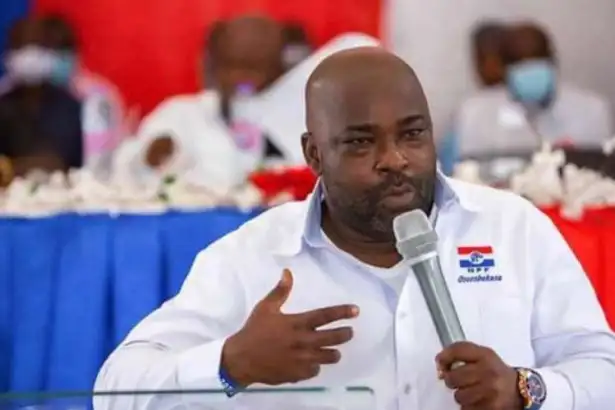The escalating influence of money in Ghanaian politics has become a pressing concern, threatening the very foundations of democracy and fair competition. Michael Okyere Baafi, the Member of Parliament for New Juaben South, has voiced his alarm over this dangerous trend, highlighting how financial inducements are increasingly overshadowing genuine political engagement and distorting the will of the electorate. He points to recent experiences in the Akwatia election as a stark example of this worrying phenomenon, where material offerings, rather than policy platforms or candidate qualifications, swayed voter decisions. This disturbing development raises critical questions about the future of Ghanaian democracy and the ability of ordinary citizens to have their voices genuinely heard.
Baafi’s observations paint a disconcerting picture of the current political landscape in Ghana. He recounted how, just days before the Akwatia election, the opposition National Democratic Congress (NDC) initiated road construction projects and distributed goods like spray machines, hair dryers, and fertilizers within the constituency. These actions, while potentially beneficial to the community, appear strategically timed to influence voter behavior, essentially buying their support rather than earning it through persuasive arguments and a demonstrable record of service. This practice effectively disenfranchises candidates who may lack the financial resources to compete with such extravagant displays of largesse, regardless of the merit of their policies or their commitment to serving the public good.
The implications of this trend extend far beyond individual elections. Baafi, a seasoned politician with experience dating back to his student days, warned that if this trajectory continues unchecked, Ghana faces a grave threat to its democratic ideals. The danger lies not only in the immediate distortion of election outcomes but also in the long-term erosion of public trust in the political process. When money becomes the primary determinant of electoral success, the focus shifts away from substantive issues and towards superficial gestures of generosity. This creates a vicious cycle where politicians prioritize short-term gains over long-term development, ultimately undermining the very fabric of democratic governance.
Baafi’s concerns resonate with a growing chorus of voices expressing anxiety over the corrosive effects of money politics. If elections become mere auctions where the highest bidder prevails, regardless of their qualifications or commitment to the public interest, then the very essence of representative democracy is undermined. The electorate becomes disenchanted, and faith in the political system dwindles, creating a breeding ground for apathy and cynicism. Furthermore, this environment discourages individuals with genuine intentions to serve the public from entering the political arena, as they may feel unable to compete with the financial muscle of established players or those with access to vast resources.
The problem of money politics is not unique to Ghana, but its increasing prevalence demands urgent attention and concerted action. Reforms are needed to level the playing field and ensure that elections are decided on the basis of ideas, policies, and the candidates’ track records, not on the depth of their pockets. This requires a multi-pronged approach, including stricter campaign finance regulations, enhanced transparency in political donations, and robust enforcement mechanisms to deter and punish those who engage in vote buying and other forms of electoral malpractice. Civil society organizations, the media, and the electorate itself have a crucial role to play in demanding accountability and holding politicians responsible for upholding the integrity of the electoral process.
Ultimately, the fight against money politics is a fight to preserve the essence of democracy. It is a fight to ensure that the voices of ordinary citizens are heard and that their needs are prioritized over the interests of wealthy donors and special interests. It is a fight to create a political system where merit, integrity, and a commitment to public service are the defining characteristics of leadership, not the size of one’s bank account. The warning sounded by Michael Okyere Baafi serves as a timely reminder of the urgent need to address this growing threat and to safeguard the future of Ghanaian democracy. Failure to act decisively now risks consigning the country to a future where money reigns supreme, and the will of the people is relegated to a mere afterthought.














